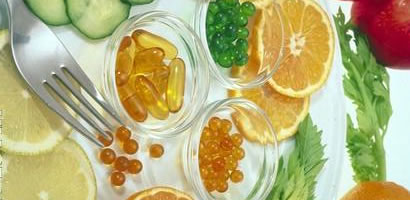Remedies : Remedies - Headache
Symptoms
Following are the signs that indicate the presence of this ailment:
- Headache can be mild, moderate or severe pain that affects the whole head, a part of the head, forehead or the eyes.
- Nausea
- Difficulty in sleeping
- Loss of appetite
- Feeling of uneasiness
Causes
According to Ayurveda, there are eleven types of headaches caused due to aggravation of three different doshas. Headaches are also caused by:
- Sinusitis
- Hypertension
- Constipation
- Over work
- Mental stress
- Indigestion
- Acidity
- Sleeplessness
- Fever
- It may also be present as a symptom of some disease
- Excessive consumption of tea, coffee, aspirin or nicotine is also known to contribute to headache
- Nervous weakness
- Anemia
- Deficiency of oxygen in the blood
- Sitting too close to the television
- Reading with insufficient light
- Reading in a moving train or car
Remedies
- Take clove, cinnamon and almond in equal quantities (around 1 teaspoon each) and grind together with a little water to make a paste. Apply paste on the forehead. A paste made of sandalwood powder can also be applied on the forehead.
- Mix a quarter teaspoon of clove powder in one teaspoon of cinnamon oil. Apply mixture to the location of pain.
- Take a few drops of ghee (clarified butter) on your palm. Mix 3 or 4 pieces of saffron in it, and rub it for two minutes. The saffron does not dissolve in the ghee, but its qualities are absorbed. Remove saffron and put two drops of this ghee in each nostril. · Dosage: Follow procedure twice a day.
- Mix 1 tablespoon of milk and half teaspoon of ginger powder and put one or Dosage; two drops in each nostril twice a day.
- Wrap a wet cloth around the neck.
- Oil massage on the scalp also relieves tension and headache. Sesame oil, almond oil, mustard oil or ghee (clarified butter) can be used for massage.
- Heat 1 teaspoon of almond oil. When it cools down, put two drops in each nostril.
Dos and don'ts
- Simple cooked vegetables without oil, vegetable juices and soup, fruits like apple, mango, grapes and fruit juices should be taken in ample quantities. Rice, salad and buttermilk are also good.
- Some sweets and milk products can be taken moderately with small quantities of nuts.
- Hot cow milk is very good to drink.
- Avoid fried foods, meat, sour and spicy foods and foods
- Yogurt should be avoided, especially at night.
- Adequate rest should be taken and exposure to cold, heat and rain should be avoided.
- The natural urges (sneezing, passing stool and urine, hunger, thirst, sleep, breathing and yawning etc.) should not be suppressed.
- The patient should also try to keep the mind free from anxiety, anger, mental tension and worry.







